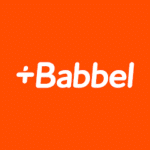Contents
- French Greetings and Introducing Yourself
- French Conversational Pleasantries
- Getting to Know Someone and Making Small Talk
- Asking for Help
- Basic French Travel Phrases
- At the Doctor’s Office or the Pharmacy
- Bonus: The Slang You Need to Know
- How Conversational French Phrases Improve Your French
- How and Where to Practice Your New French Phrases
70 Conversational French Phrases

Mastering French requires more than just knowing grammar and vocabulary—it’s about being able to engage confidently in conversation. Conversational fluency is essential for navigating daily life, building connections, and truly understanding the language’s nuances.
Yet, us learners struggle to find the right phrases to start practicing. Below I’ve provided 70 essential conversational phrases to help you feel more prepared and natural in French-speaking environments.
You’ll also encounter a ton of these phrases in this story-based lesson on our YouTube channel:
Download: This blog post is available as a convenient and portable PDF that you can take anywhere. Click here to get a copy. (Download)
French Greetings and Introducing Yourself
It’s imperative that you learn how to introduce yourself and someone else in French because if you can’t do this confidently, it’ll be difficult to continue a conversation. It’s also important that you know what to say at different times during the day, as this is an important part of French etiquette. First and foremost let’s look at French greetings.
Greetings
| French | English |
|---|---|
| Bonjour | Hello/Good morning (used in the morning and afternoon) |
| Bonsoir | Hello/Good evening (used in the late afternoon and evening) |
Introducing yourself
| Je m’appelle | My name is… |
| Je suis | My name is... (lit. "I am...")* |
*This literally translates to “I am,” but it can also be used to say “my name is” when you introduce yourself. For example, “Je suis Jennifer” or “Je m’appelle Jennifer” means “My name is Jennifer.”
Asking what someone’s name is
| Comment tu t'appelles ? | What is your name? (informal) |
| Comment vous appelez-vous ? | What is your name? (formal) |
Introducing someone else
| Je vous présente Fabienne, ma femme. | I’d like to introduce you to Fabienne, my wife. |
| Voici Fabienne, mon épouse. | This is Fabienne, my wife. |
| Voici Philippe, mon époux. | This is Philippe, my husband. |
French Conversational Pleasantries
After you’ve got the basic greetings under your belt, you can then approach the essential phrases needed when speaking French on a daily basis and at a variety of events and occasions.
Learning how to say “have a nice day,” “enjoy your meal” and “how are you?” are just a few examples of everyday phrases that you have to know. The French say “have a nice day” to anyone to whom they say “goodbye.” If you don’t say it, it’s considered rude, so it’s an essential phrase!
The French also love to eat and really savor their food, so saying “enjoy your meal” is an obligation before every meal. There are many more phrases to learn to start your learning journey, so let’s get going!
| French | English |
|---|---|
| Enchanté/Enchantée | Nice to meet you (masculine/feminine [lit. "enchanted to meet you!"]) |
| Ça va ?, Comment ça va ? / Comment allez-vous ?* | How are you? (informal/formal) |
| Bonne journée | Have a good day |
| Tu veux un verre ? / Voulez-vous un verre ? | Would you like a drink? (informal/formal) |
| Tu veux aller manger ? / Voulez-vous aller manger ? | Would you like to eat something? (informal/formal) |
| Bon appétit (Often shortened to bon app ! when spoken.) | Enjoy your meal! |
| J'espère te voir bientôt ! / J'espère vous voir bientôt ! | I hope to see you soon! (informal/formal) |
| À bientôt ! | See you soon! |
| Je reviens tout de suite ! | I’ll be right back! |
| Félicitations ! | Congratulations! |
| Joyeux anniversaire / Bon anniversaire | Happy birthday! |
| Joyeuses fêtes ! | Happy Holidays! |
| Joyeux Noël ! | Merry Christmas! |
| Prends soin de toi. / Prenez soin de vous. | Take care of yourself. (informal/formal) |
*These three phrases are used to say “how are you?” They differ depending on who you’re speaking to. Comment allez-vous is the formal way of saying “how are you?” whereas ça va and comment ça va are informal, used for friends, family and people you know well.
Getting to Know Someone and Making Small Talk
When learning any language, it’s important to learn how to small talk with native speakers. You may use these questions and phrases to learn more about someone or just to keep the conversation going.
Whatever the reason, make sure you learn these phrases!
| French | English |
|---|---|
| D'où viens-tu ? / D’où venez-vous ? | Where are you from? (informal/formal) |
| Je viens de... | I'm from... |
| Que fais-tu dans la vie ? / Que faites-vous dans la vie ? | What do you do? (informal/formal) |
| Je ne travaille pas. | I don't work. |
| Je suis étudiant. / Je suis étudiante. | I am a student. (masculine/feminine) |
| As-tu des frères et sœurs ? / Avez-vous des frères et sœurs ? | Do you have any siblings? (informal/formal) |
| J'ai un frère et deux sœurs. | I have a brother and two sisters. |
| Je n'ai pas de frères et sœurs. | I don't have any brothers or sisters. |
| As-tu des animaux de compagnie ? / Avez-vous des animaux de compagnie ? | Do you have any pets? (informal/formal) |
| J'ai trois chats et un chien. | I have three cats and a dog. |
| Je n'ai pas d'animaux de compagnie. | I don't have any pets. |
| Qu'est-ce que tu fais généralement pendant ton temps libre ? / Que faites-vous généralement pendant votre temps libre ? | What do you usually do in your free time? (informal/formal) |
| Pendant mon temps libre... | In my free time... |
| Parles-tu d'autres langues ? / Parlez-vous d'autres langues ? | Do you speak any other languages? (informal/formal) |
| Je parle... | I speak... |
| Je parle français, anglais et espagnol. | I speak French, English and Spanish. |
| Je parle couramment deux langues. | I speak two languages fluently. |
| J'apprends... | I'm learning... |
| Si tu pouvais parler une autre langue, laquelle choisirais-tu ? / Si vous pouviez parler une autre langue, laquelle choisiriez-vous ? | If you could speak another language, which one would you choose? |
| Si je pouvais parler une autre langue, je choisirais de parler... | If I could speak another language, I would choose to speak... |
| Si tu pouvais voyager n'importe où, où irais-tu ? / Si vous pouviez voyager n'importe où, où iriez-vous ? | If you could travel anywhere, where would you go? (informal/formal) |
| Si je pouvais voyager n'importe où, j'irais à... | If I could travel anywhere, I would go to... |
Asking for Help
It’s essential to be able to ask for help in a number of situations in French. Maybe you don’t understand and need the person to repeat. Or maybe you need help because you’ve gotten yourself lost or can’t find something. Regardless of the situation, you’ll always need to know how to ask for help.
For this purpose, it’s also important to learn the vous form in French (the polite form) as most often when you ask for help you’re asking people you don’t know. French etiquette demands that the vous form be used with strangers. Knowing how to ask for help can really assist you when you’re traveling in French-speaking countries.
| French | English |
|---|---|
| Est-ce que tu pourrais m'aider ? / Est-ce que vous pourriez m’aider ? | Could you help me please? (informal/formal) |
| Aide-moi s'il te plaît ! / Aidez-moi s’il vous plaît ! | Please help me! (informal/formal) |
| Je ne comprends pas, peux-tu répéter s'il te plaît ? / Je ne comprends pas, pouvez-vous répéter s’il vous plaît ? | I don’t understand, could you repeat please? (informal/formal) |
| J'ai besoin d’aide. | I need help. |
| Je ne parle pas français. | I don't speak French. |
| Pourrais-tu traduire ceci pour moi, s'il te plaît ? / Pourriez-vous traduire ceci pour moi, s'il vous plaît ? | Could you please translate this for me? (informal/formal) |
Click here to see our guide to asking questions in French.
Basic French Travel Phrases
If you’re planning on taking your language skills abroad and traveling to a French-speaking country, it’s important to know some basic travel phrases to help you get around and talk to native speakers.
Whether you want to ask for the time or buy a ticket, below you’ll find some of the most common French travel phrases.
| French | English |
|---|---|
| À quelle heure arrive le bus ? | What time does the bus arrive? |
| À quelle heure part le bus ? | What time does the bus leave? |
| Où puis-je acheter un billet ? | Where can I buy a ticket? |
| Je voudrais acheter un billet pour... | I would like to buy a ticket to... |
| Je cherche le guichet. | I'm looking for the ticket office. |
| Où puis-je trouver un taxi ? | Where can I find a taxi? |
| Où est-ce que je peux trouver la gare, s’il vous plaît? | Where can I find the train station, please? |
| Je voyage à... | I'm traveling to... |
At the Doctor’s Office or the Pharmacy
It’s happened to all of us once in our lives: Your vacation finally comes around and you get sick. When this happens to you in a French-speaking country, you’ll find yourself in a foreign place trying to explain your symptoms to a doctor in a language you’re only just learning.
You need to learn some of the more basic expressions so that, if this happens, you can explain how you feel. It’s crucial that you know these phrases so that you can get the correct medical care when you’re abroad. It’s also important when speaking to French people so you can understand their symptoms and give them some advice or help.
| French | English |
|---|---|
| Je pense que je dois aller à l'hôpital. | I think I need to go to the hospital. |
| Puis-je parler à un médecin ou à une infirmière ? | Can I speak to a doctor or a nurse? |
| Y a-t-il une pharmacie à proximité ? | Is there a pharmacy nearby? |
| J’ai une toux. | I have a cold. |
| J’ai un rhume. | I have a cold. |
| J’ai mal à la gorge. | I have a sore throat. |
| J’ai de la fièvre. | I have a fever. |
| J’ai mal à la tête. | I have a headache. |
| J’ai mal au ventre. | I have stomachache. |
| J’ai une douleur au bras. | My arm is painful. |
| J’ai une douleur à l’oreille. | My ear is painful. |
You can find more essential medical vocabulary plus common phrases here.
Bonus: The Slang You Need to Know
Some slang words are now used every day in the daily life of French people and have become part of the French culture and vocabulary.
It’s important to know certain popular slang terms that you’ll often hear when speaking with native speakers. Understanding slang will help you to understand more of a conversation and will advance your French speaking skills. Here are just a few examples to get you started:
| French | English |
|---|---|
| Ciné | Cinema |
| Resto | Restaurant |
| Boulot | Work |
| Balle | Euro; franc |
| Une clope | A cigarette |
| Relou | Annoying |
For more must-know French slang, check out this post.
How Conversational French Phrases Improve Your French
As language learners, we have a tendency to underestimate the power of speaking, often falling back into our old school habits of keeping our noses in books. I can assure you that this is not the best way to learn to speak French. As someone who’s now bilingual, I’m a great believer in speaking right from the start of your language learning journey.
Speaking is key to learning French (or any language) because that’s how your brain synthesizes its linguistic knowledge.
All those things you’ve read about and heard on French talk radio programs? They’ll fly right out of your head again if you don’t put them to good use.
Now, practicing speaking can understandably be intimidating at first. So, the best solution to calm those nerves and get talking is to learn more conversational French phrases and vocabulary. This will help you feel prepared when the time comes to speak. Plus, by learning a good selection of conversational French phrases you’ll open the door to a world of new opportunities.
Acquiring basic phrases is the first stepping stone in learning a new language. It’ll help any learner speak more fluently and more naturally. As a result, you’ll quickly become more confident in yourself and feel more at ease when speaking.
By learning how to express yourself in French and also knowing how to ask for clarification and help understanding or explaining something, you open up a whole new dimension of language learning. Armed with these phrases, every native speaker you encounter is a potential tutor, encouraging you to speak more and teaching you even more phrases and expressions.
How and Where to Practice Your New French Phrases
The internet offers unlimited access to websites and downloadable applications that can help you learn and practice phrases. Some even let you record your voice and compare your recording with the voice of a native speaker, a great tool for improving pronunciation.
Websites and apps
Babbel
Babbel has everything you need to learn French, focusing on learning vocabulary first and having you pick up grammar as you go along. It has a large number of lessons for people of different skill levels in French.
You’ll find that a number of lessons are free in each category but only the first lesson is free. After that, you’ll have to pay for a membership to download the other lessons. With a membership, you’ll also gain access to games and podcasts.
You can read our full review of Babbel here.
FluentU
Available on: Browser | iOS | Android
Other sites use scripted content. FluentU uses a natural approach that helps you ease into the French language and culture over time. You’ll learn French as it’s actually spoken by real people.
FluentU has a wide variety of great content, like interviews and web series, as you can see here:

FluentU brings native videos within reach with interactive subtitles.
You can tap on any word to look it up instantly. Every definition has examples that have been written to help you understand how the word is used.

For example, if you tap on the word "crois," you'll see this:

Practice and reinforce all the vocabulary you've learned in a given video with FluentU's adaptive quizzes. Swipe left or right to see more examples for the word you’re learning and play the mini-games found in the dynamic flashcards, like "fill in the blank."

As you study, FluentU tracks the vocabulary that you’re learning and uses this information to give you a 100% personalized experience.
It gives you extra practice with difficult words—and reminds you when it’s time to review what you’ve learned.
Start using the FluentU website on your computer or tablet or, better yet, download the FluentU app from the iTunes or Google Play store. Click here to take advantage of our current sale! (Expires at the end of this month.)
Busuu
Busuu is the world’s largest social network for language learning and offers courses for you to follow. The courses consist of speaking exercises, writing assignments and multiple choice questions. You can use it for free as an ordinary member or upgrade to premium to have more options and choices (the premium prices are very similar to Babbel).
Click here to read our Busuu review.
WordPower
Available on: iOS
A phrasebook-based learning method that’s free of charge and offers over 100 French words to use in daily life, as well as sample sentences and free audio lessons, all for free.
For more information on applications and websites you can use check out our blog about online French lessons.
Language exchange
Whether you live in the UK, the US or Europe, finding a language exchange partner is fairly simple. I dabbled in language exchange when I first moved to Paris five years ago and can highly recommend it. Even though I was living in a French city, I didn’t necessarily have the opportunity to practice a lot. Many people spoke English and I also worked for an American company with a lot of native English speakers.
So there I was, in Paris, struggling to speak French and wondering how best to learn the basic French phrases. That’s when I turned to Tandem. There are also a number of websites you can use to find and arrange lessons with a private French tutor, like italki.
One of the best ways to improve is to have someone to practice with, so language exchange or one-on-one tutoring is the perfect solution! The private tutoring I can’t recommend enough—not only will you guarantee yourself some excellent immersion time and quality feedback, but a tutor can guide you through all of your French learning experience and really boost your progress.
Traveling
When you’re on vacation in a French-speaking country, you have an excellent opportunity to practice the language. You can practice your speaking skills, listening skills and reading skills in a number of different situations. The most important thing is to practice your basic phrases before you begin your trip and make sure that you have a good phrasebook to take with you! I highly recommend “The Lonely Planet French Phrasebook & Dictionary,” it’s a great book for traveling!
You can also take a look at more basic phrases for survival in a French-speaking country here.
So, now you’re fully equipped with an array of conversational French phrases. Start practicing them!
You’ll soon see how quickly your French language skills will improve and how much you can learn from a few basic phrases.
Start your journey today!
Download: This blog post is available as a convenient and portable PDF that you can take anywhere. Click here to get a copy. (Download)

















